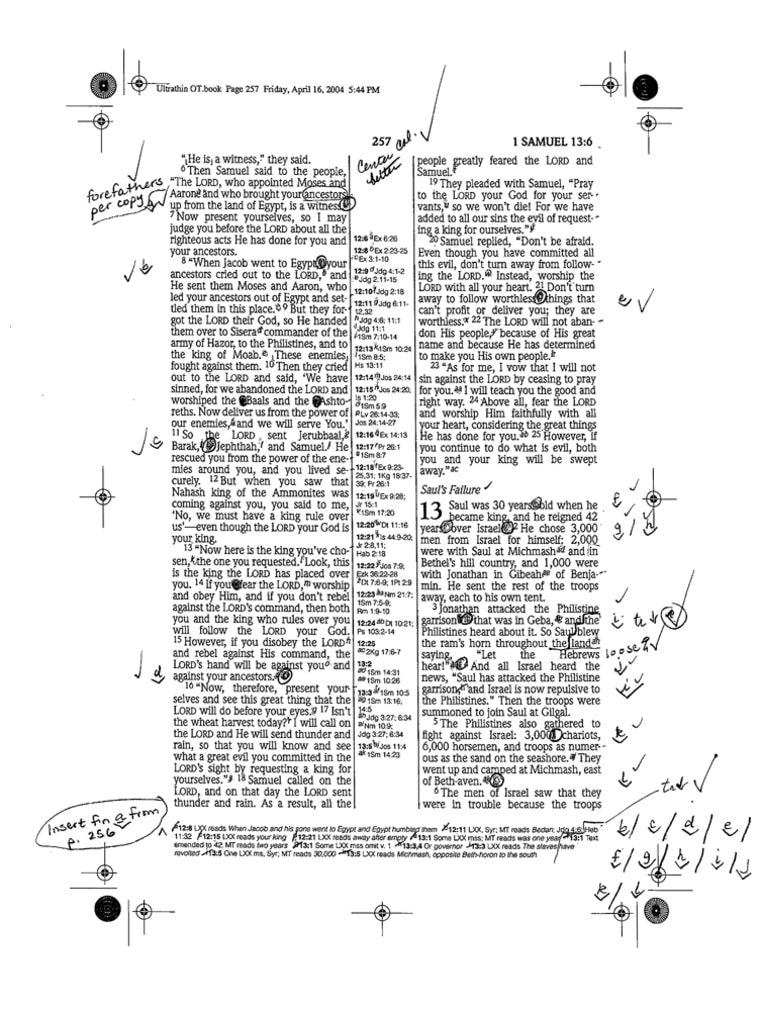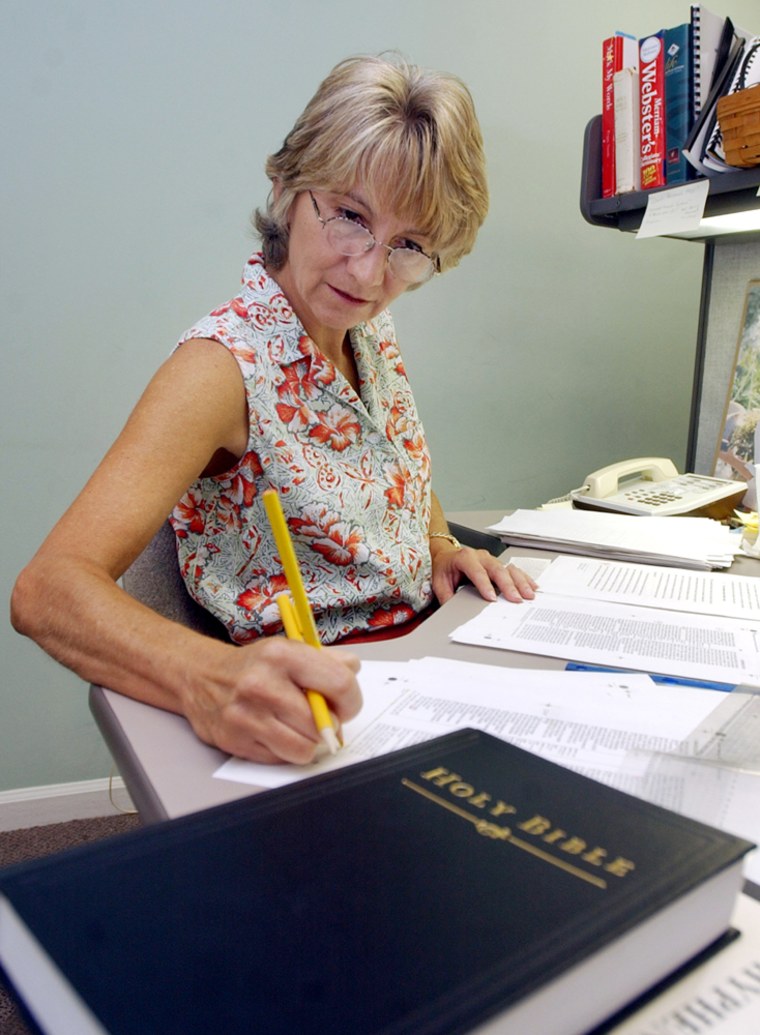Thank the Lord — and the proofreaders at Peachtree Editorial and Proofreading — that the Bible refers to “our ancestors” instead of “sour ancestors,” and calls for an end to “factions” — not “fractions.”
The proofreading service caught those typos and others before the latest edition of the holy book went to press.
At Peachtree, attention to detail is more than a job description. It’s a calling.
“Bible readers are less forgiving of errors because they expect perfection in the Bible text,” said June Gunden, who founded the business along with her husband, Doug.
Peachtree Editorial and Proofreading Service is believed to be the only one of its kind in the nation — and one of only a few in the world — to specialize in proofreading Bibles.
“As many words as there are in the Bible, you can imagine all the kinds of things that could go wrong,” said David R. Shepherd, publisher of the Holman Christian Standard Bible. “It would be devastating to have a typo in the wrong place or a word left out.”
Don't forget the ‘not’
A list hangs in the Gundens’ office as a reminder of just how much rides on their work. The list, a collection of notorious typos found in the Bible, features one prominent error from a 1631 King James edition: “Thou shalt commit adultery.”
“Obviously, you try to make sure anything that says, ‘You shall not,’ you make sure you have the ‘not,”’ Doug Gunden said.
While such long-ago errors are good for a chuckle, the Gundens, who have been in the proofreading business for more than 25 years, realize that proofreading a Bible is serious stuff.

With an ordinary book, “you can put up with more because it’s not something you’re basing your whole life on,” June Gunden said. “It’s information, but it’s not really life-changing information. It’s not something you believe to be infallible.”
The best-selling book of all time has reached even greater heights in recent years, with Bible sales accounting for almost $140 million last year, an 8 percent increase over 2002, according to the Evangelical Christian Publishers Association, which tracks sales at Christian stores.
More calls for new editions
Publishers have been producing new, annotated editions with study notes and graphics — all of which require the Gundens’ services.
“In the last three months, we’ve had more calls for new Bibles that people want us to get on our schedule than I can remember,” June Gunden said.
Wall-to-wall bookshelves at the Peachtree office display the hundreds of Bibles that have passed under the eyes of the 17-person staff.
The staff recently finished one of its largest projects, the Holman Christian Standard Bible, the latest of only a dozen English translations produced since the 15th century. The 20-year, $10 million project employed about 100 biblical scholars, linguists and editors to translate the Bible from the original Greek, Hebrew and Aramaic into modern English.
A matter of faith
For the last two years, the project was in the hands of the Peachtree staff, which combed each page repeatedly, looking for such things as typos and punctuation errors.
Peachtree’s employees incorporate their faith into their work, starting each project with a prayer.
“If you work on these projects and you don’t have an appreciation for this gift that God has given us — his word — it’s a little more difficult for you to recognize the magnitude of the project,” Doug Gunden said.
